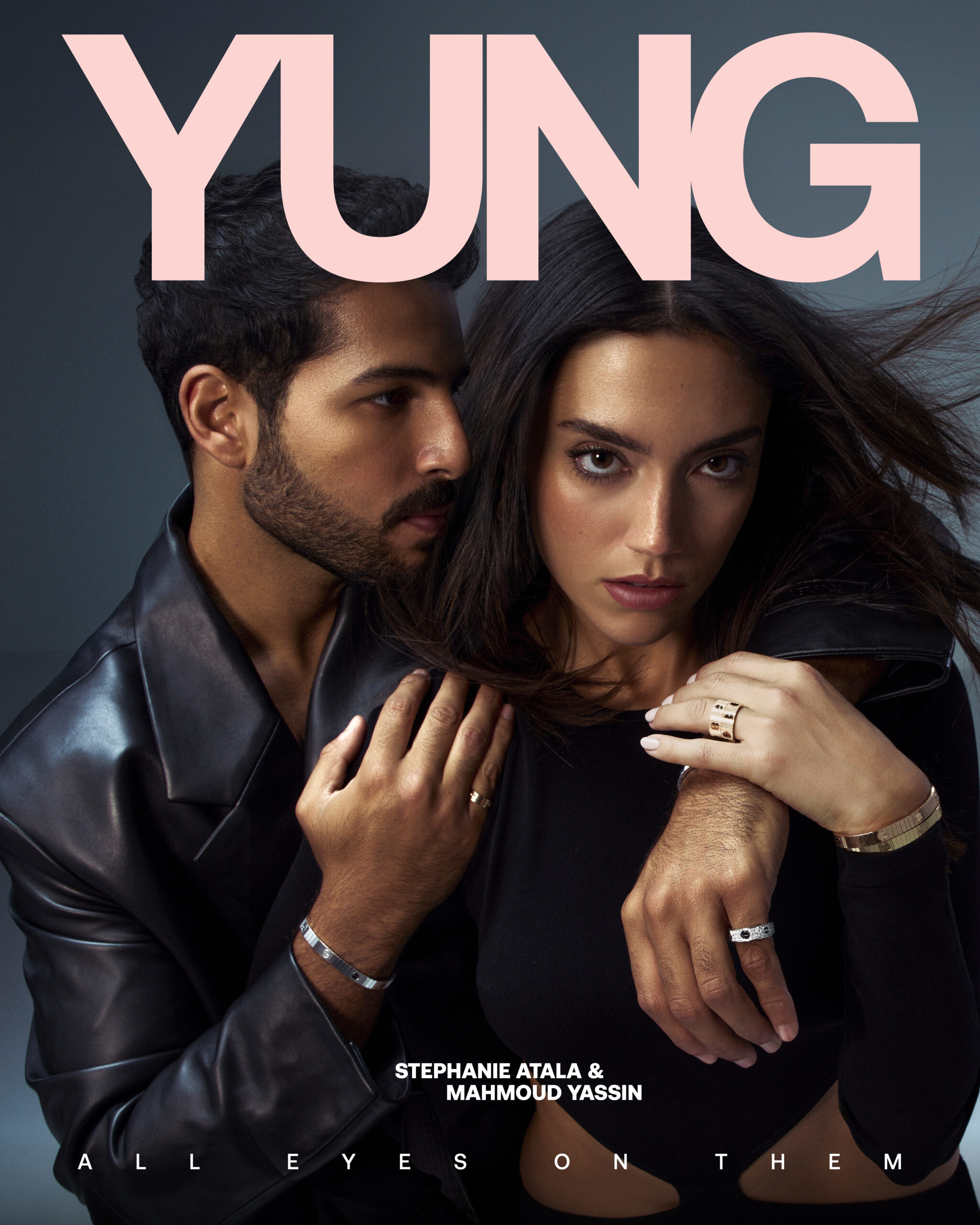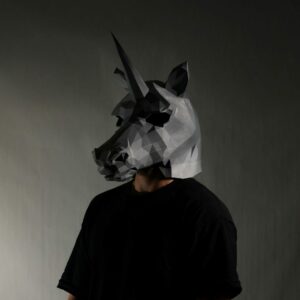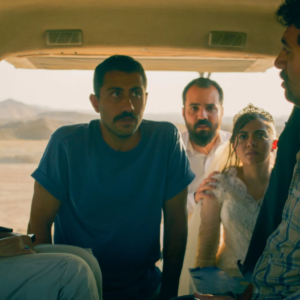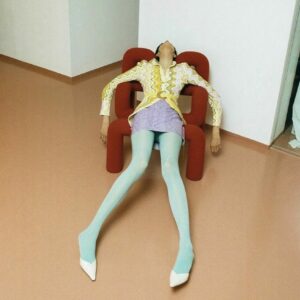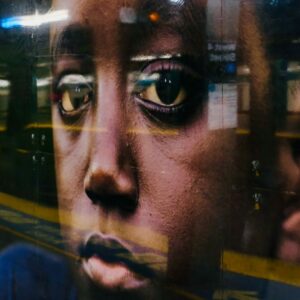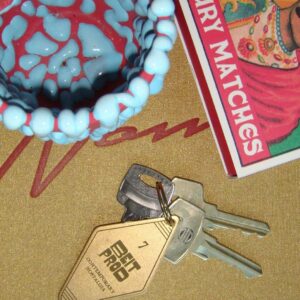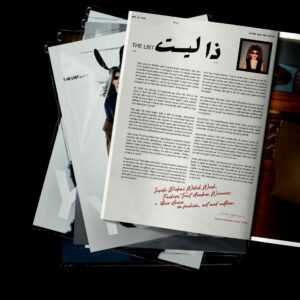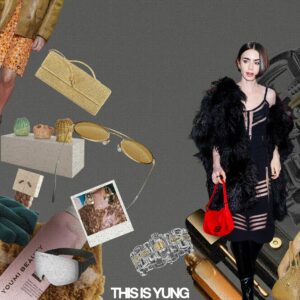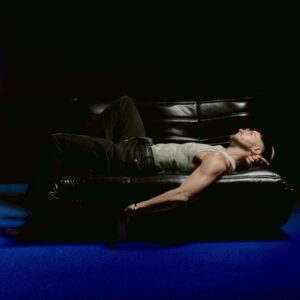220 Youm (220 Days), now streaming on Netflix, has quickly become one of the region’s most talked-about dramas, weaving together stories of love, loss, and family across generations. In Episode 10, the spotlight shifts to Maryam’s parents, Lina and Seif, whose youthful romance unfolds in the 1980s. Played by two of the Arab world’s brightest rising stars, Stephanie Atala and Mahmoud Yassin, their story adds depth and resonance to the series’ larger narrative.
Atala steps into the role of Lina, a young woman caught between desire and duty, while Yassin portrays Seif, whose quiet resolve and emotional complexity anchor their relationship. Together, the pair bring to life a love story marked by nostalgia, tension, and vulnerability. In talking to each, they reflect on their craft, the challenges of embodying such layered characters, and the on-screen chemistry that made their collaboration unforgettable.
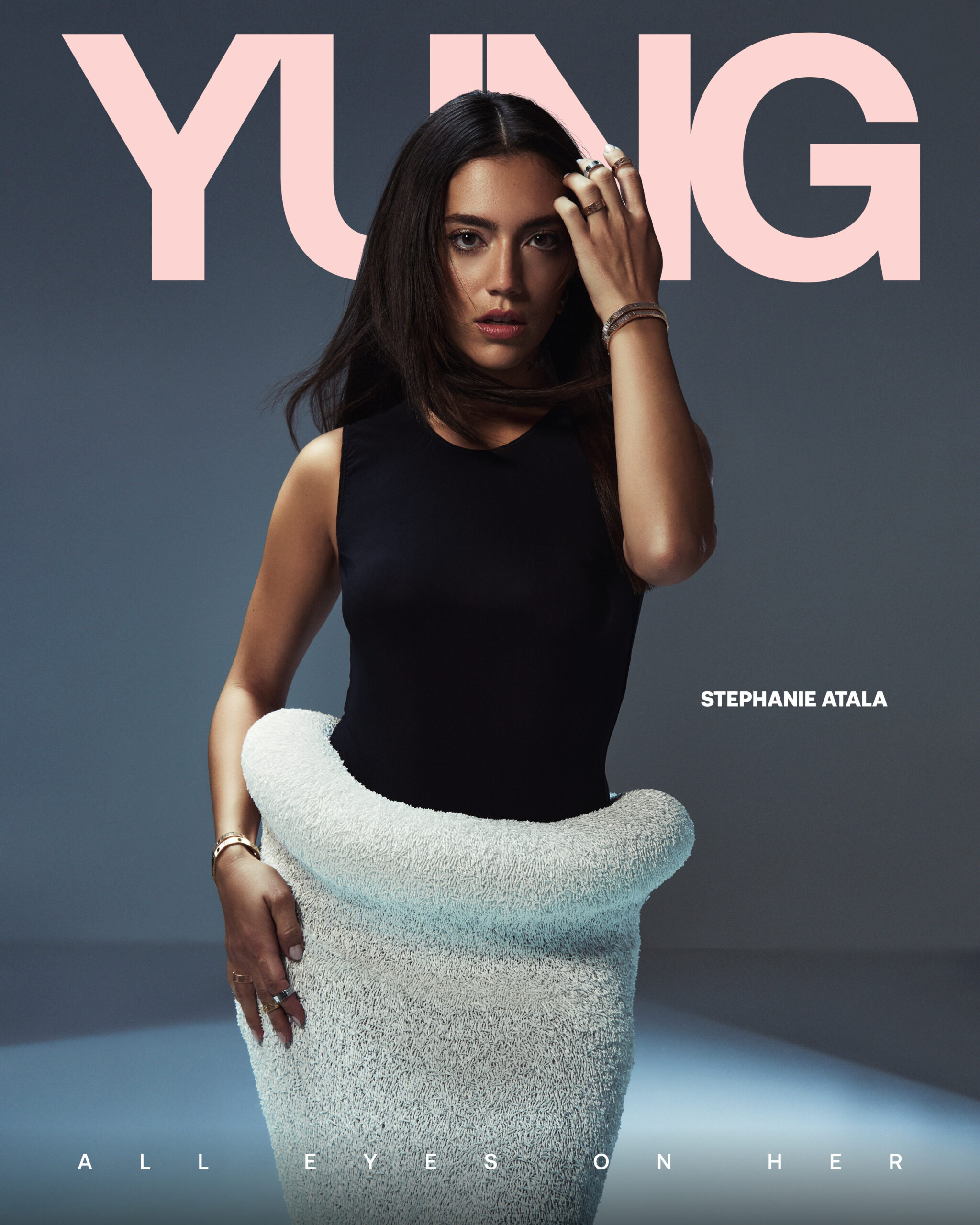
Here we start with Stephanie Atala:
When did you first realise you wanted to become an actress, and what was your very first role?
It happened in the strangest, most unexpected way. I was a painfully shy child, yet always mesmerised by the magic of cinema and theatre. When I was about four, I was at a restaurant where they were filming a TV commercial with another child who had a meltdown. I went over to comfort him and somehow ended up booked for the role. After that, I did several commercials as a kid. As a teenager my shyness returned, but acting became a way to escape myself and step into other people’s lives. At university, I threw myself into theatre and short films that travelled to festivals, slowly landing bigger roles. It grew naturally from there and I’ve been in love with it ever since.
What have been the most defining moments in shaping your craft so far?
Each step has shaped me, not just as an actress but as a person. That first childhood commercial showed me acting could be real. My first short film in university gave me the validation I needed to pursue it seriously. Theatre was transformative too – especially Lies and Likes, a demanding monologue about social media, and later performing for six months in a large-scale production directed by Georges Khabbaz.
On screen, Crystal was a breakthrough, airing on MBC and becoming the #1 trending show for months on Shahid, reaching millions across the Arab world. Cinema has my heart – especially Iman, which travelled to festivals worldwide, and Farah Farah, a UK-UAE co-production. This year I filmed a French series in Paris, set to premiere in 2026, it feels like a door opening to the international stage. All these moments remind me the journey is just beginning.
How do you stay creatively inspired?
By really living. As an actor, you need to keep filling your inner world to have something real to draw from. Music is always with me, sometimes I even wake up humming melodies. I watch endless films and series, always carry a book, and surround myself with creativity. I come from a family of musicians and my husband is one too, he composes, arranges, and performs, so being around that energy keeps me inspired and ambitious.
Curiosity is everything; it keeps the art alive.

With 2025 being such an active year for you, what upcoming projects or goals excite you most?
This year has been full of milestones. Personally, I got married, and having that creative partnership has completely shifted how I work. He’s my best friend and collaborator, always brainstorming with me, it makes me braver. Professionally, I’m especially excited about the French series I shot in Paris earlier this year. Being half French, joining a purely French production meant a lot. It will air in 2026, and it feels like the beginning of a whole new chapter.
Can you describe the essence of your character in Salma and what drew you to her?
I play Mirna, and she’s a roller coaster, one of those once-in-a-lifetime roles. Honestly, I hesitated. To portray her truthfully, I dove into understanding how people with those traits think, researching paranoia and even psychopathy. She’s incredibly dark, and in our region, audiences often blur the line between actor and character. I knew people might hate her, and me. But that fear made me say yes. I wanted to show my range, to step far outside who I am. Mirna embodies everything dark, everything I’m not, and it was liberating to dive into her completely.

What was the atmosphere like on set? Were there any moments that stood out or unexpected challenges you faced?
Shooting Salma was surprisingly light-hearted despite the heavy role. It was my second time on a long-format Turkish project, we filmed in Istanbul for nine months, so I was prepared for the pace and the feeling of living abroad. The set felt like family, especially with with Takla Chamoun and Nicolas Daniel, who played my parents. Playing someone as dark as Mirna could have been draining, so I protected my energy – always reading, listening to music, or joking with the crew between takes. That balance kept me sane through 220 days on set.
The role is intense – how did you prepare for Mirna, and has it affected how people see you in real life?
Absolutely! People often tell me I look very innocent, so being offered someone so dark was unexpected and exactly why I wanted it. With little prep time, I threw myself into the script, pushing past my limits. Experience gives you layers, and I poured all of mine into Mirna. And yes, people see me differently now. At the airport recently, a woman walked by and said, “I hate you… why did you do that to her?” It’s strange, but also the greatest compliment, if audiences forget you’re acting, you’ve done your job!
Your portrayal of Lina, a young Maryam’s mother in the 1980s, is central to 220 Days. How did you approach embodying both the spirit of that era and the nuances of her character?
Every role teaches me about myself. Lina was no exception, preparing for her, with director Kareem El Adl, felt like therapy. She’s calculating, impulsive, even cruel at times, the complete opposite of me. Exploring her psyche expanded my understanding of human nature. It was a challenging but deeply rewarding process that pushed me as both an actor and a person.
Episode 10 explores Lina’s love story with Seif in a flashback. What was it like to perform those emotionally layered scenes?
It felt almost like stepping into a dream. Episode 10 had this softer, romantic tone, and the director encouraged open dialogue, which made the process very collaborative. I researched the 1980s to capture the era, and the transformation – the hair, makeup, clothes, even the vintage sets – helped me slip fully into her world. It was rich with emotional highs and lows, and I’m grateful I got to portray such a tender chapter of her story.
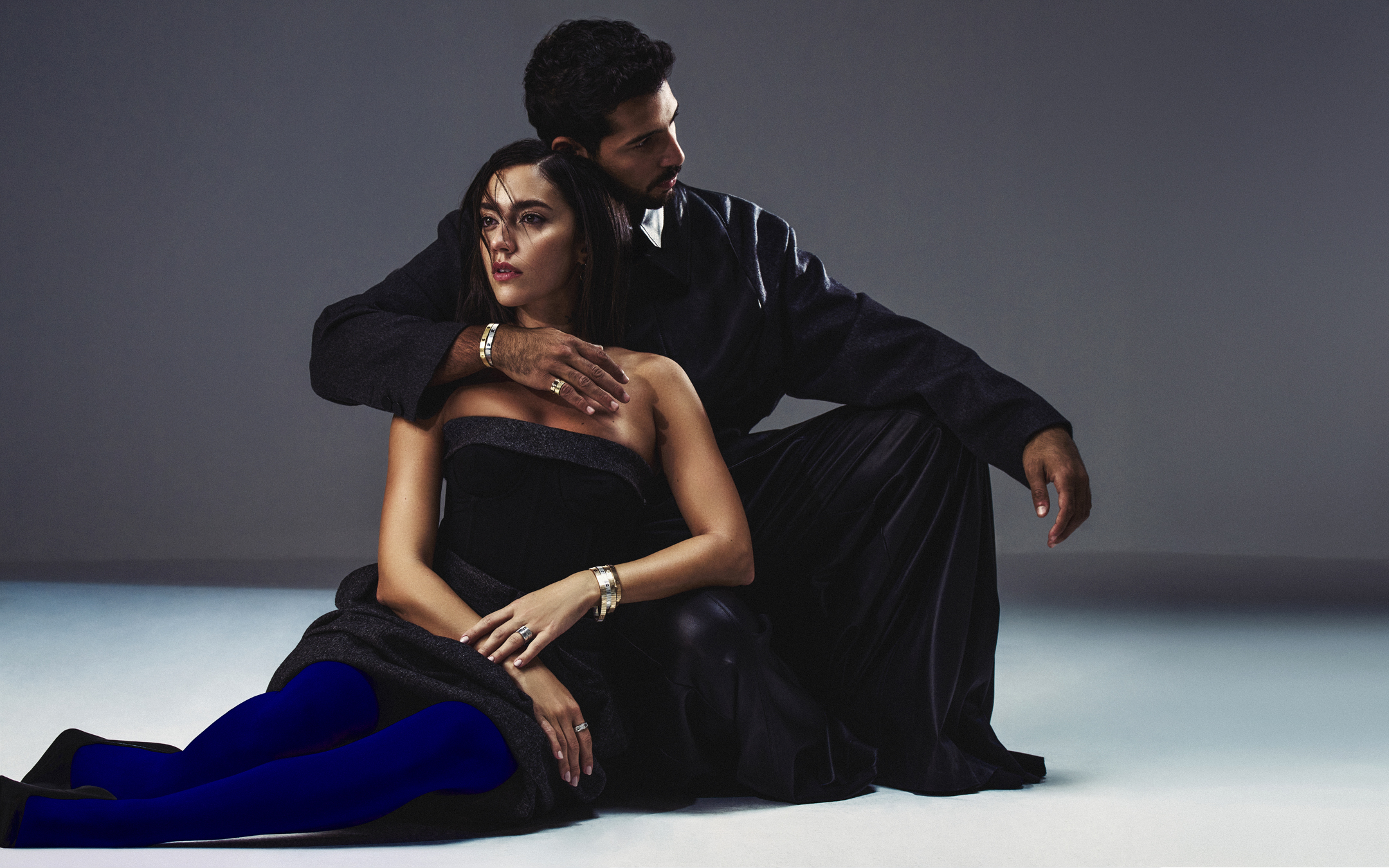
This scene received a lot of attention, especially the fact that you’re singing… Tell us about that and take us into your music career, will there be one?
I loved singing ‘Ana Hawet w Entahet’ in the series! It’s such an emotional piece from an older era. The director suggested it, and it became even more special because my brother, Christian Atala, arranged it on piano and recorded it in his studio. Music has always been part of my life; I come from a musical family, and collaborating with them and my husband fills the process with joy.
The way the song was placed made the moment feel incredibly romantic, I think that’s why it touched so many people. Singing and acting are my two great loves, and yes, there’s more music coming. I’ve released a few songs, and on October 14th, I’ll release a new love song called Halat Gharam. It’s about how women love – fully, courageously, and freely – and it’s very personal to me. Going forward, I want to merge music and acting more through storytelling music videos.
Did stepping into the role of a mother from a different generation bring any unexpected challenges or fresh inspiration?
It definitely stirred something in me. I’m not a parent yet, but playing one made me think about what kind of mother I’d want to be. It reminded me that if I ever do become one, I want to be fully ready and give the best version of myself. That role planted a seed of reflection I’ll carry with me.
What’s next for you?
Up next is a mix of everything I love: more cinema, new series, and possibly a Ramadan project if it comes together. There are international premieres ahead, especially for a French film, and plenty of travel and appearances along the way. Music will take centre stage with my new single Halat Gharam in October and quietly, I’ve been writing my own film for over a year. It’s still under wraps, but it’s finally coming to life.
And finally… would you like to collaborate with Mahmoud again in the future?
It was such a pleasure! When you’re playing a duo on screen, there’s this emotional ping-pong that only works with trust, respect, and chemistry and with you, it just felt effortless. There was this unspoken spark between us that made the scenes come alive. You’re incredibly talented and have such a bright future – I’d love to collaborate again.
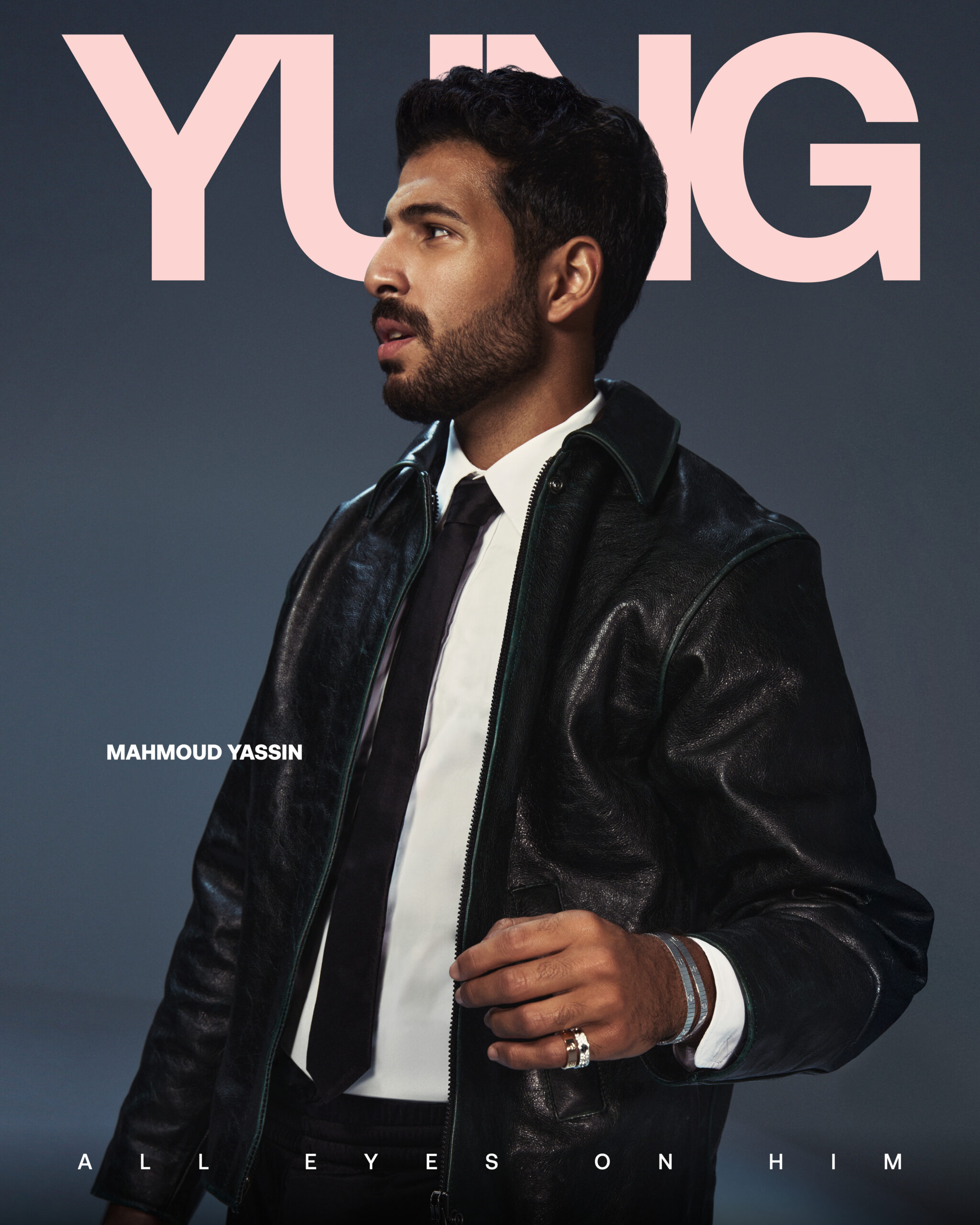
And here we talk to Mahmoud Yassin:
As an actor, how do you strike a balance between trusting the director’s vision and bringing your own personal interpretation to a character, especially in a series like 220 Days?
As an actor, I’ve learned that balance comes from respect. I respect the director’s vision and trust the bigger picture they’re holding, but at the same time I don’t mute my own instincts. I like to bring pieces of myself into the role – sometimes a gesture, a silence, or even a certain rhythm – that can make the character breathe in a way only I can offer.
In 220 Days, your character isn’t at the centre of the story, but still contributes to its emotional tone. How do you approach smaller roles with quiet impact?
For me, no role is ever “small.” In 220 Days, my character wasn’t at the centre of the story, but I knew he could carry a certain emotional tone. I approached him with care, focusing on presence and nuance. Sometimes quiet impact lingers longer with audiences than loud moments.
Do you believe that certain characters “find” you at the right moment in life? Did your role in 220 Days teach you anything you weren’t expecting to learn?
I truly believe characters find you at the right moment. This role came when I needed to reconnect with stillness. It reminded me that subtlety can be powerful, and that not everything has to be spoken out loud to be deeply felt.
When you’re playing a character with limited screen time, what becomes your focus: presence, energy, or something else entirely?
With limited screen time, my focus is presence. Energy is important, yes, but what I really try to do is leave behind a trace, something the audience remembers even when I’m no longer on screen.
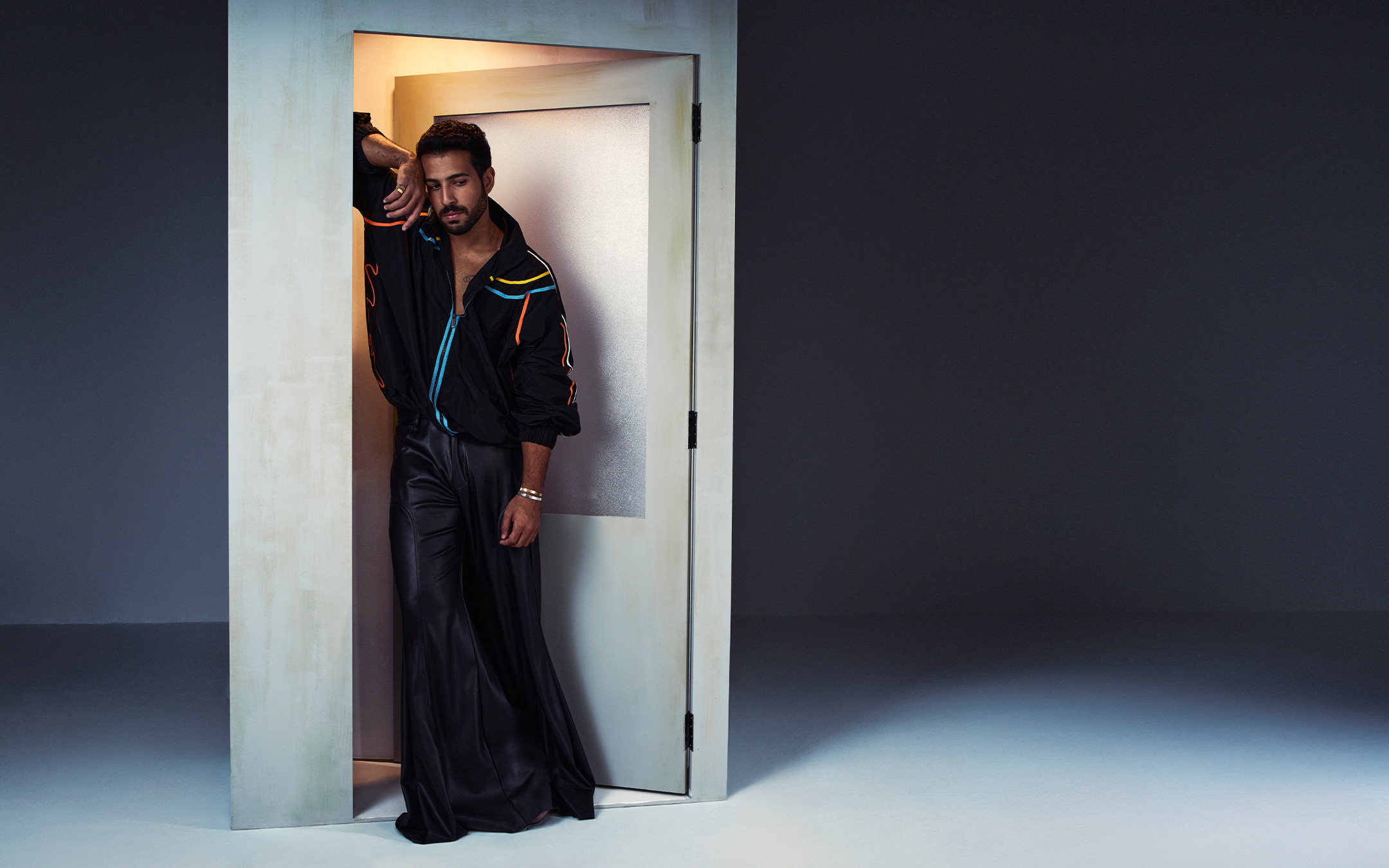
What’s something your character in 220 Days was carrying, emotionally or psychologically, that viewers might not catch at first glance?
What my character in 220 Days carried was a quiet loneliness. He wasn’t broken, but there was a hidden fragility beneath his surface. I don’t think every viewer catches it on first glance, but it’s there, between the lines.
Our on-screen relationship in 220 Days has a certain quiet tension, there’s warmth, but also restraint. How did you approach building that dynamic from your side, and what do you think it added to the emotional texture of the series?
Working together was about building tension without over-explaining it. We created a dynamic where warmth and restraint coexisted. That “in-between” space gave the series a tenderness that felt real – the kind of silence that speaks louder than dialogue.

How has your view of “heroism” in Arab storytelling changed over the years, especially when it comes to playing male characters?
My view of heroism in Arab storytelling has evolved. For a long time, heroes were written as flawless men who never cracked. Today, I find more meaning in playing characters who stumble, doubt, and even fail. That vulnerability is where true heroism lives.
What does vulnerability look like for men in Arab media today? And is it something you feel comfortable embodying on screen?
Vulnerability for men in Arab media today is slowly becoming more accepted. To me, it doesn’t weaken a character; it humanizes him. I’m comfortable embodying that on screen, because I think audiences are hungry for truth, not perfection.
Coming from a family of storytellers, artists and huge legacies, do you ever feel the pressure to prove something new, or has your definition of success shifted with time?
Coming from a family of storytellers and artists, of course there’s pressure – but over time, my definition of success shifted. I no longer chase proving myself. I focus on telling stories that matter to me, because that’s where authenticity lives.
What’s something you’ve only recently started to understand about yourself as an artist?
Something I’ve recently understood about myself as an artist is that I don’t need to rush. Art isn’t a race. The deeper I live, the deeper my performances become.
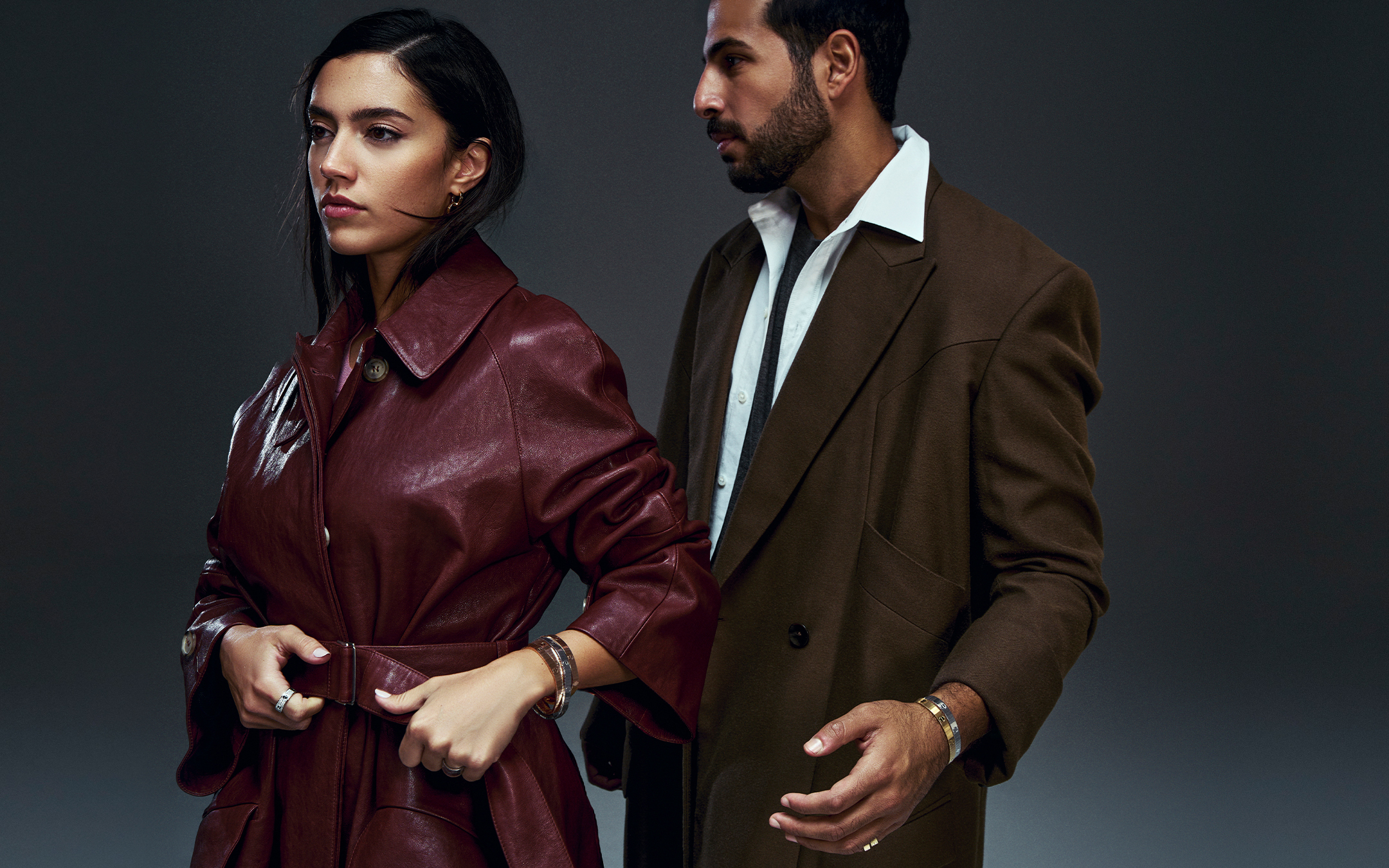
If you weren’t in the public eye, do you think you’d still be telling stories in some way? How?
Even if I weren’t in the public eye, I’d still be telling stories. Maybe through writing, maybe through directing – because storytelling is not just a profession for me, it’s part of how I process life.
Your father left behind a powerful legacy in Arab cinema. How has that shaped the way you see this industry? Are there lessons he passed on that still guide your choices today?
My father’s legacy is a guiding force. He taught me that cinema is larger than fame – it’s about responsibility to the audience. His lessons on discipline, humility, and respect for the craft still shape every choice I make.
Streaming platforms like Shahid are bringing in new formats and new expectations. How do you see your role evolving in this changing landscape?
The Middle Eastern audience is evolving quickly, especially with platforms like Shahid changing how stories are consumed. I see my role evolving with it – embracing new formats, experimenting with fresh narratives, and staying open to ways of connecting with audiences that go beyond tradition.
For more stories of art and culture, visit our dedicated archives and follow us on Instagram.
